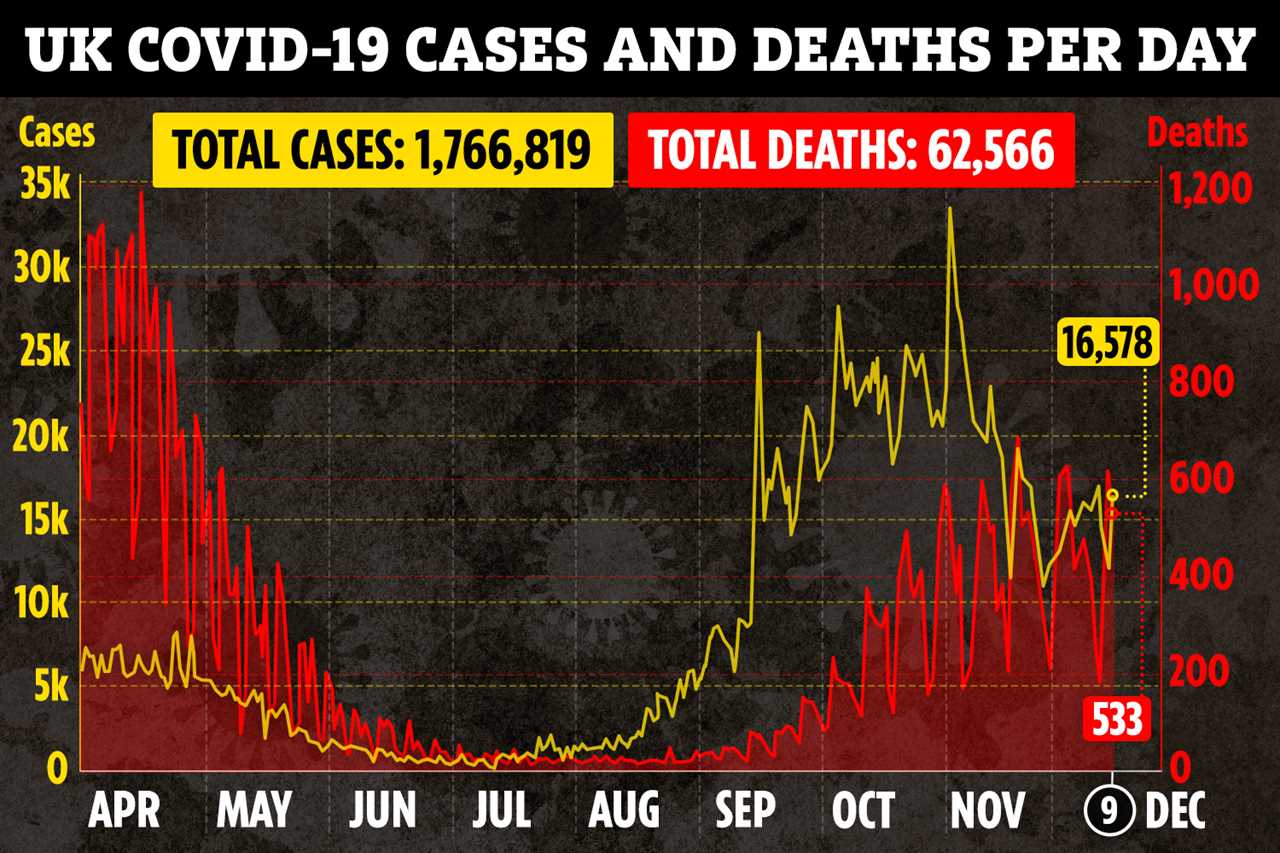CORONAVIRUS transmission through semen cannot be completely ruled out – despite little evidence, an scientists have said.
An expert has also warned here is a “plausible reason” for men to be concerned that Covid-19 could affect their fertility.

Professor Allan Pacey, an andrologist at the University of Sheffield and former chairman of the British Fertility Society, said he looked at 14 scientific papers which focus on Sars-Cov-2 – the virus that causes Covid – and male fertility.
One such study, which is yet to be peer-reviewed, involved a small group of men who were admitted to a hospital in China with Covid-19 and tested positive for Sars-Cov-2 in their semen.
Meanwhile, there have been other small studies suggesting that sperm counts of Covid-19 infected men temporarily declined after they were diagnosed with the disease.
But Prof Pacey said studies such as these have caveats and should not be seen as conclusive as they “looked at a remarkably small number of men”.
‘GREATER DAMAGE’
Speaking at a virtual conference on fertility, genomics and Covid-19, organised by the Progress Educational Trust (PET), Prof Pacey said: “There is, understandably, I think, very little epidemiological data at a population level, or for men intending for assisted conception.
“I think that is a group that we still need to closely look at, because if men are at the infertile end of the spectrum, then maybe, they are likely to suffer greater damage than men who are in the normal range.”
He added: “There is little current evidence that Sars-Cov-2 is transmitted in semen, but I don’t think I can completely rule it out, so we still need to carry on with further studies.”
Prof Pacey, who is also the editor-in-chief of the journal Human Fertility, said that despite little evidence that Sars-Cov-2 can be detected in semen, there has been some analysis which “suggests that it might be present in the testicles”.

He added: “Perhaps that shouldn’t be a surprise because we know all kinds of viruses do sequester themselves in the testicles – Ebola, dengue fever, zika.
“The testes is an immuno-privilege site and viruses can, kind of, hang around there for quite some time without causing any clinical pathology to the individual.”
Meanwhile, Ashley Moffett, emeritus professor of reproductive immunology at the University of Cambridge, who was also speaking at the conference, said that there is no evidence that pregnant women are more seriously at risk of death from Covid-19 infection.
But she added that, at the moment, it is too early to recommend Covid-19 vaccines for mothers-to-be until more data becomes available.
Prof Moffett said: “The vaccine trials did not include pregnant women so this will have to wait until we have that information.”
Earlier in the pandemic, researchers claimed that men who had recovered from the infection still had Covid-19 in their semen.
Chinese scientists analysed the output of 38 patients who had caught the illness – 15 who were still in hospital and 23 who had recovered.
Overall six men, or 16 per cent, had the virus SARS-CoV-2, which causes coronavirus, in their sperm sample – and two of them were already over their illness.
Scientists say it suggests the bug can persist much longer in the testes and could be spread later through sex.






